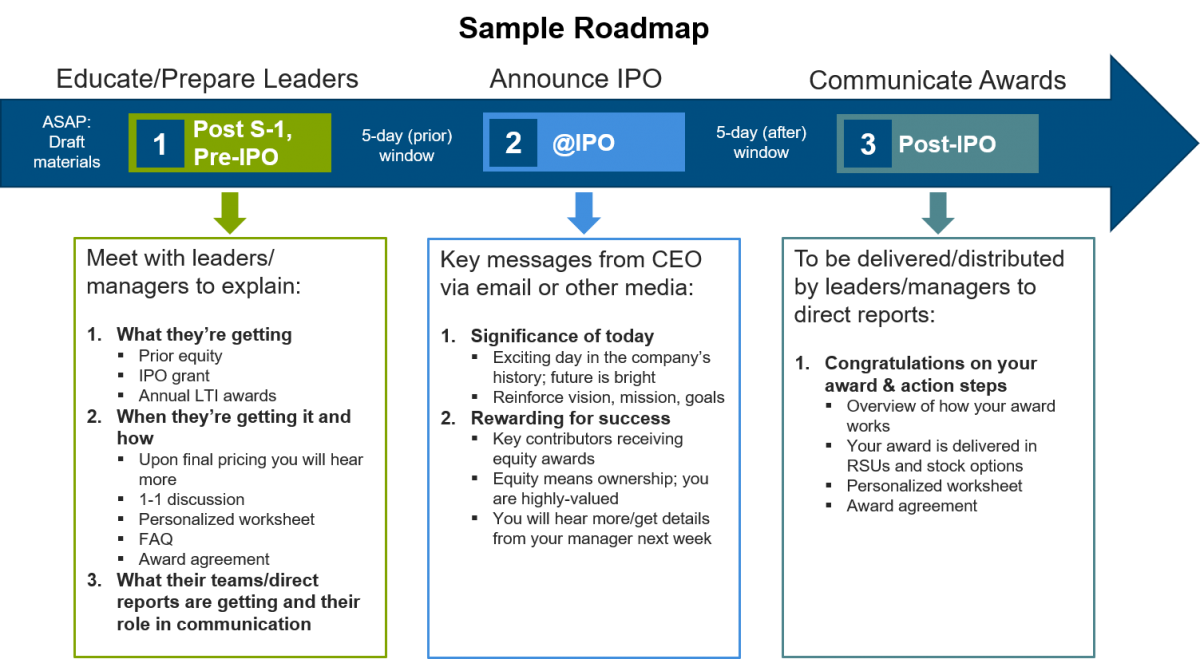
Advisor Blog | May 2021
IPO Equity Awards: What’s the Message?
What happens to one’s pay at the time of a transaction is not intuitive and requires clear communication
If your company is about to go public, you know that an incredible amount of work is going into designing your compensation programs, much of which is intensely analytical and requires around-the-clock attention. Equally important, but most likely getting somewhat lost in the shuffle, is the communication planning needed to help ensure that your employees understand the short- and long-term implications of the company going public and what it means for their compensation.
In recent months, IPOs (and SPACs) have become part of popular vernacular, but what happens to one’s pay at the time of a transaction is not intuitive. Employees who hold equity prior to the transaction, as well as those who don’t, will have questions. These may include, among others:
- What happens to my current equity?
- Am I eligible for equity in the future, and if not, why?
- Why are you granting me a value and not a set number of shares?
Without answers, companies can face unwanted, internal blowback because many employees will be aware that some folks at the top are receiving significant levels of upside.
Absent proper planning and an understanding of when and how to communicate the impact of going public on compensation, companies run the risk of disenfranchising critical talent, minimizing the positive implications of going public, and diminishing employees’ perceptions of the value they bring to the table. It may be tempting to de-prioritize this; after all, how can you create a communication strategy when your hair is on fire from everything else that must get done to cross the finish line? But don’t succumb to this trap. Communication could be a significant make-or-break factor when it comes to ultimate IPO success.
Start with a simple roadmap, based on three key phases: (1) post-S-1 filing/pre-IPO listing, (2) IPO date, and (3) post-IPO. Outline the key stakeholders with whom you need to communicate in each phase, how those communications will be delivered, and by whom. Work with your teams to determine how transparent you want or need to be about who will be receiving equity and why. Be clear about the type(s) of equity vehicles being used for the awards, including what they are, why they were chosen, and how they work. Include resources for equity plan participants so they know where to turn for questions, including administrative issues (e.g., access to brokerage accounts, etc.).
Taking a company public is a big deal and compensation—regardless of where an employee fits within the organization—is a huge piece of the story. Be sure to give your compensation communication strategy and development the quality time it needs to keep your workforce engaged in the company’s ongoing success and focused what they can do to capitalize on the opportunities in a high-growth environment. The last thing the board and CEO want on “IPO day” is fallout from employees—the event is meant to be a celebration of all the hard work to date and set the stage for the work that is to be done for the future.

